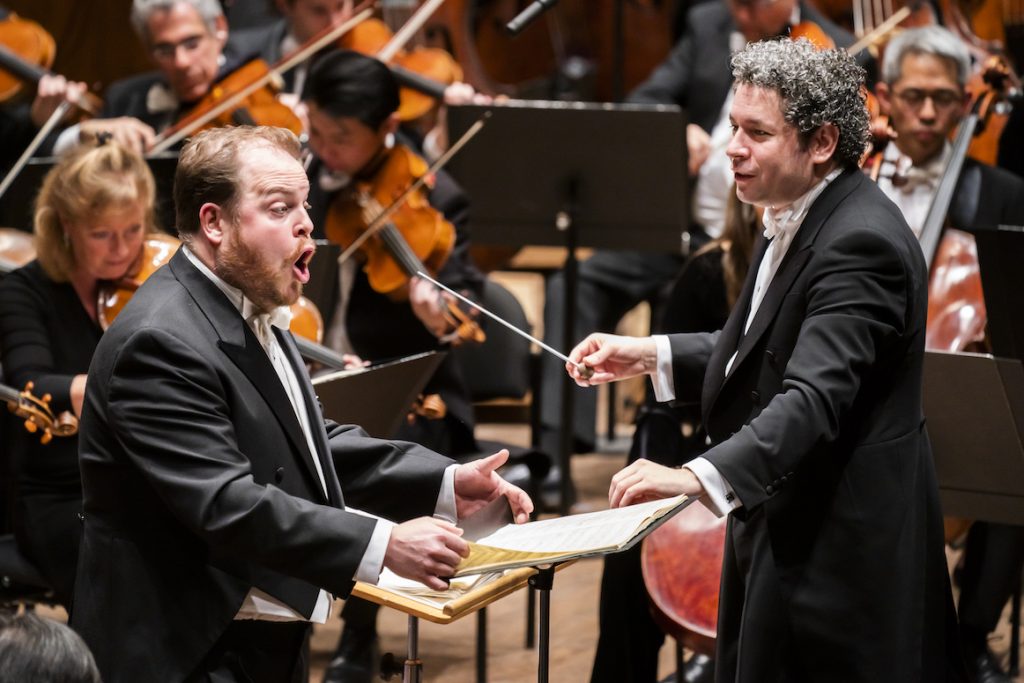Dudamel, Philharmonic overcome shaky Schubert with Staples as late Mahler sub

Thursday was one of those days for the New York Philharmonic and guest conductor Gustavo Dudamel, and Thursday night turned out to be one of those nights.
As Philharmonic president Deborah Borda told the audience before the evening’s performance, Simon O’Neill, the scheduled tenor soloist in Mahler’s Das Lied von der Erde, had awakened that morning without a voice. Fortunately, the orchestra was able to recruit tenor Andrew Staples, fresh from the Met’s Wozzeck, in time for him to rehearse with the orchestra that morning.
Borda did not say what other rehearsal plan was shelved in order to get Staples into the act. But one has to think it involved Schubert’s Symphony No. 4, the only other work on the program.
For reasons known only to himself, the 19-year-old composer appended the title “Tragic” to this lively piece after he’d composed it. Dudamel and the orchestra gave the title new meaning Thursday night with a performance so ill-coordinated and clueless that one wished they had just fessed up, said it wasn’t ready, and gone straight to the Mahler.
On this night, it was as if the Classical era in music had never existed. The symphony’s four finely-etched movements — a vigorous Allegro vivace modeled on Mozart’s Symphony No. 40, a suave Andante with marcato episodes, a biting Menuetto in dizzying two-versus-three rhythms, and a light but agitated finale — all sank in the morass of heavy bass sound and tentative playing by strings and winds. Under Dudamel’s direction, the group seemed to have no idea what it was trying to express beyond loud and soft.
Turning hopefully to the Mahler, one could almost visualize the only-in-New-York scenario of an orchestra president, in effect, opening her office window and calling across the Plaza for a tenor with this fiercely challenging part in his back pocket.
By 8:30 or so that night, tenor Staples was ready with a sterling performance, brassy like the orchestra in the opening “Drinking Song of Earthly Sorrow,” lightening his tone and turning on the charm in “Of Youth,” stentorian and comically self-important in “The Drunkard in Spring.” His heady, well-supported voice scaled the heights with ease.
Not to be outdone by this not-even-overnight sensation, soprano Michelle DeYoung brought an exceptionally full-bodied timbre, clear diction, and sensitive inflections to her part, and closed the show with a mesmerizing performance of the work’s long closing song, “Der Abschied” (The Farewell).
Dudamel and his players supported the singers well, clearly realizing Mahler’s magical orchestral effects. If Thursday’s performance didn’t quite have that melting expressive flow that can make believers out of the most confirmed Mahler skeptics, one can chalk it up to a distracting day, and hope for more spontaneous performances to come.
The program will be repeated 8 p.m. Friday and Saturday. A Philharmonic spokesperson said tenor Andrew Staples will appear at both performances. nyphil.org; 212-875-5656.






